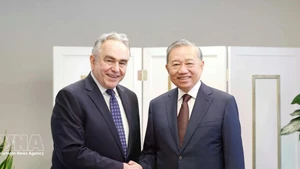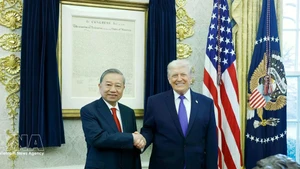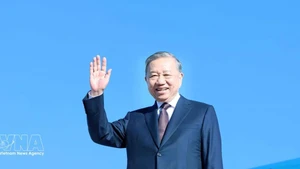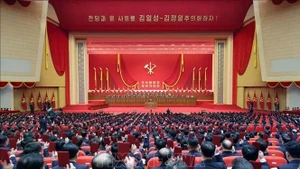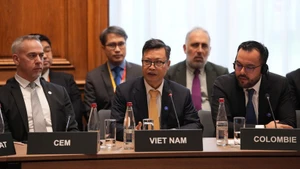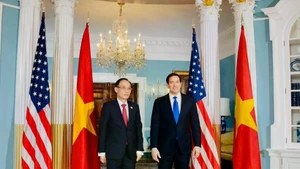In a candid, friendly and constructive atmosphere, the two leaders discussed the bilateral relations, socialist theory, Party governance and national development, reaching significant common perceptions.
"Viet Nam always attaches much importance to developing the neighbourly friendship and the Comprehensive Strategic Cooperative Partnership with China, seeing it as an objective requirement, a strategic choice, and a leading priority in its foreign policy," PM Chinh stressed.
Wang, for his part, extended congratulations on the 80th anniversary of Viet Nam’s National Day and sent greetings to Viet Nam’s top leaders.
Viet Nam and China are close neighbours, comrades and brothers with a shared future, he said, adding China wishes to work closely with Viet Nam to effectively implement high-level perceptions, expand cooperation across all areas, and bring tangible benefits to the two countries’ people. He expressed his confidence that Viet Nam will successfully achieve its two centenary goals.
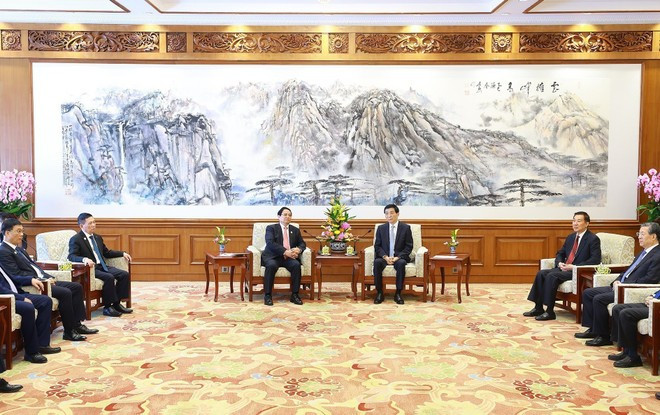
PM Chinh congratulated China on its major economic and theoretical achievements, particularly in advancing the sinicisation and modernisation of Marxism by adapting its core principles to China’s specific conditions and integrating them with the country’s rich cultural traditions. The PM outlined Viet Nam’s achievements in refining socialist theory and its path toward socialism with three main pillars - building a socialist democracy, a socialist rule-of-law state, and a socialist-oriented market economy.
The Vietnamese leader also highlighted six key tasks related economy, foreign affairs, national defence and security, culture, social equity, and Party building; along with 12 groups of main tasks and solutions to realise the country’s development goals in the new era, plus three strategic breakthroughs. Viet Nam closely observes and seeks experience from China’s latest theoretical and practical development steps, he said.
Agreeing with PM Chinh's opinions, Wang praised Viet Nam’s achievements and important theoretical innovations on socialism and its path toward socialism, particularly the integration of Marxism with Viet Nam’s practical conditions. He expressed his admiration for Viet Nam’s recent great strides in reform, reflected in rapid economic growth and significant improvements in people’s living standards.
The Chinese front leader shared with the Vietnamese Government leader recent theoretical innovations of the Communist Party of China (CPC) in integrating Marxism with the practice and outstanding cultural tradition, as well as its “four comprehensives” and “five in one” strategic layout, stressing the deep similarities between the two countries’ theoretical system of the path to socialism. He expressed a desire to enhance exchanges and share experience to support the cause of socialism building in each country.
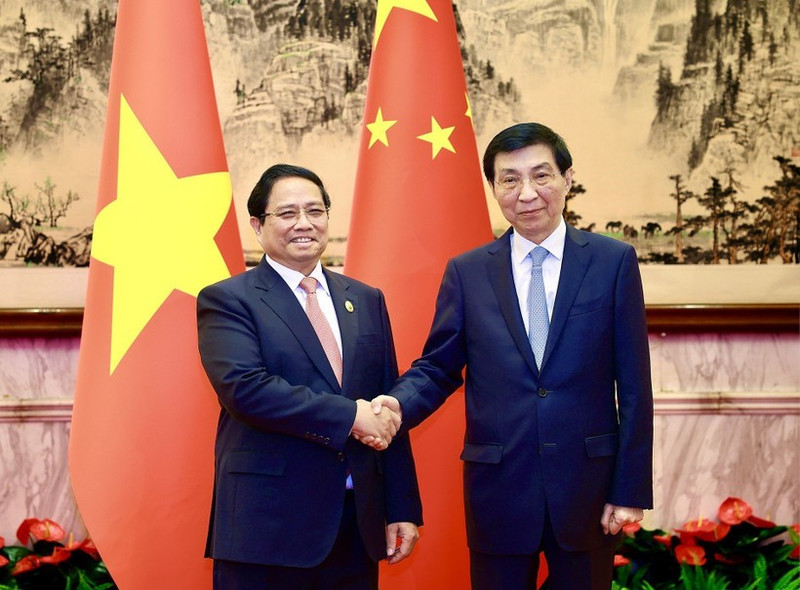
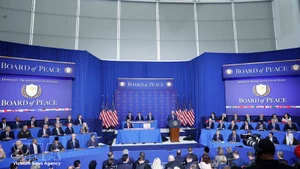
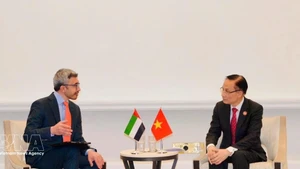
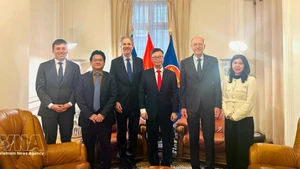
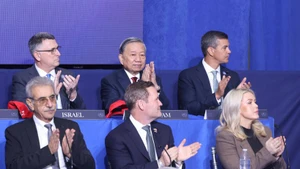
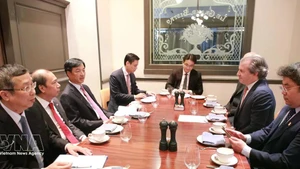
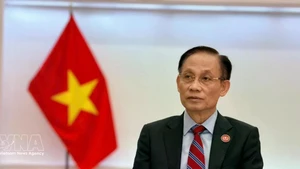
![[In pictures] Party General Secretary To Lam meets US President Donald Trump](https://en-cdn.nhandan.vn/images/dcd63867a0eed4c7753eb4bfb346593abc1ce710dfab8ad1b9aebd75ea6bf930b2ea13e4664779d689ba40aadd80f76d5d05d1208720fd7b0d811ace3a3297321c78cf738400e136e3f2d8790b24d43646e46edbe19517144a88f6ffb0d528f153574a7109328cc0949e4a4c16433c2ff751541639eefe4490518227264cbf8e/vna-potal-tong-bi-thu-to-lam-gap-tong-thong-hoa-ky-donald-trump-8599945.jpg.webp)
